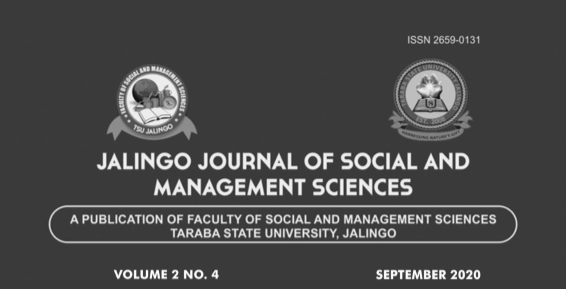Rural Farmers’ Perception of Climate Change and its Impact in Girei Local Government Area, Adamawa State, Nigeria
Keywords:
Climate, Climate Change, Girei, Impact, PerceptionAbstract
This study was designed to investigate the climatic characteristics and rural farmers’ awareness, perception and impacts of climate change in Girei Local Government Area of Adamawa State, Nigeria. Forty-one years records of temperature and rainfall of the growing season were used for the study. This is in addition to the farmers responses regarding their perception on the impact of climate change. Descriptive statistics and time series analysis techniques were employed to analyze the data. Perception was assessed using 13-points farmers’ descriptions of weathers parameters while impacts were determined with respect to statistical significance of 13-points impacts statements. The results of the findings show that the respondents are subsistence farmers, most of whom are within active population age of 30-61years. They have mean household size of 7 persons and majority of them (74%) have attained some sort of formal education with weak income base (annual average of N100, 000). The climatic elements of the area are highly variable; revealing increase of about 1oC in temperature and decrease of 24.6mm3 in rainfall within the forty-one years of study period. The rural farmers’ perception of the climate change was expressed in descriptions of weather phenomena such as rainfall and temperature effectiveness variables; increased temperature; frequent occurrence of floods, droughts and windstorms etc. The perceived causes of the change in climate were attributed to God’s punishment for human disobedience as well as natural and human factors. The impacts range from decline in crops-yield, ranked 1st, to deaths of livestock (13th) with nine discovered to be statistically significant. It was recommended that government needed to give more attention to these rural poor by making farm inputs and access to credit facilities available. Required institutions such as healthcare, veterinary services as well as infrastructures like good roads, power supply etc. should be made accessible.

Downloads
Published
Issue
Section
License
Copyright (c) 2023 JALINGO JOURNAL OF SOCIAL AND MANAGEMENT SCIENCES

This work is licensed under a Creative Commons Attribution-NonCommercial 4.0 International License.
